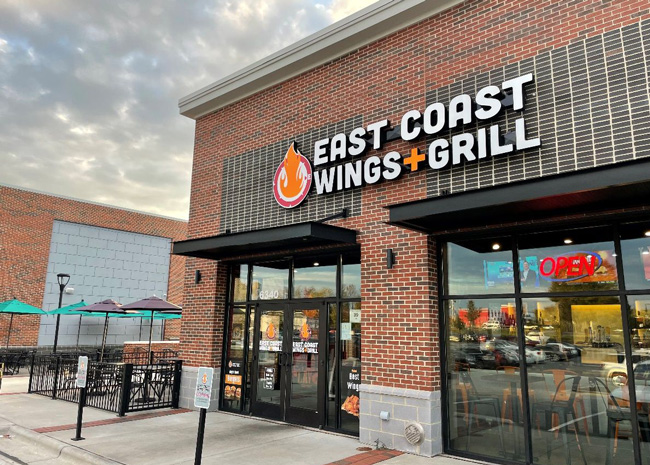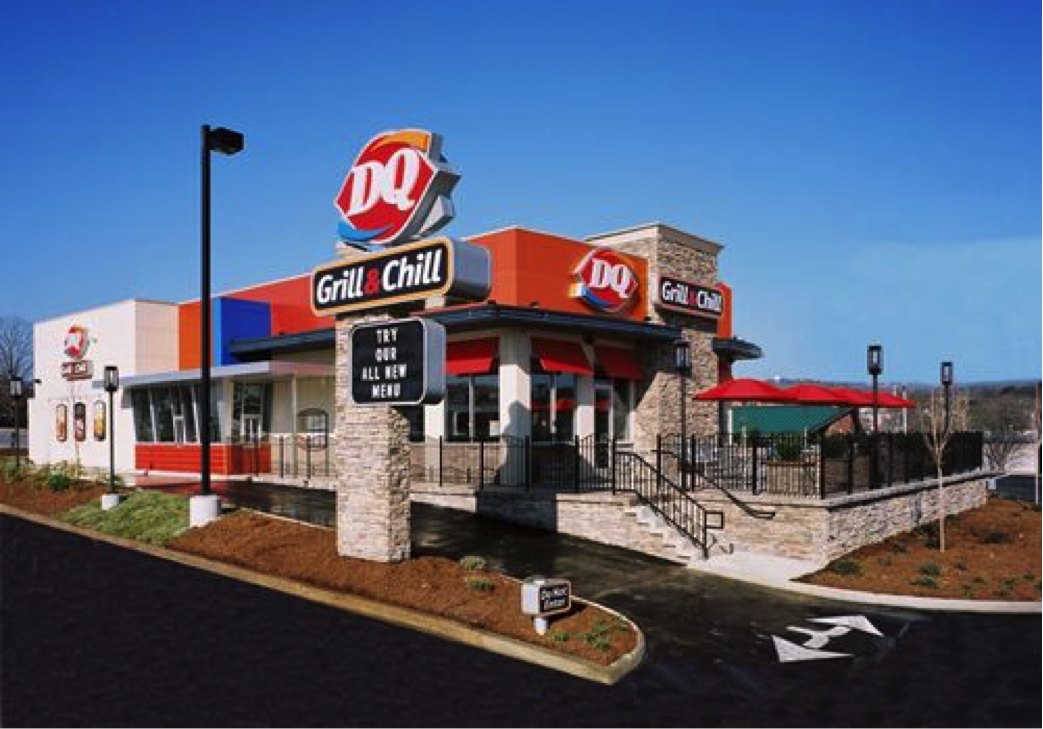In effort to reduce costs and maximize output, casual dining chain East Coast Wings + Grill has developed and tested a fast-casual prototype design that it plans to roll out to franchisees.
Known as ECW 2.0, the design reduced development costs by approximately 30%, while shrinking square footage by 27%, per a release announcing the new design. East Coast Wings + Grill did this while sustaining unit-level sales of the original, larger store layouts.
After seeing the success of the 2.0 model, Sam Ballas, East Coast Wings + Grill’s CEO, personally invested in relocating the chain’s Clemmons, N.C. restaurant in September of 2020 to a smaller box pilot location with only 14 tables and 4 patio seating areas. The 2,290 square foot restaurant reduced development costs by roughly $100,000 and requires less staff.
“With a 13-month proofing period of the Clemmons’ Unit Level Economics, we were able to sustain the casual dining feel but with a fast-casual box size and some hybrid operations,” Ballas says. “Expanding our data, we’re currently testing a refined Clemmons model in a total fast-casual operations model at our existing campus location serving the University of North Carolina in Greensboro and its immediate market under new leadership. Looking ahead to expansion outside of our current Southeastern markets, we have the data to further execute a condensed ECW+G model with a limited fan-favorite menu approach, designed to reduce development and labor cost while sustaining our core philosophy of driving unit-level economics.”
As the second testing site, the UNCG campus location converted into a fast-casual restaurant with a to-go counter, reduced menu board and carry out section. “This restructured model addresses long-haul real estate concerns, streamlines kitchen equipment cost, runs with less labor, has fast-casual benefits all while operating at a reduced full-service level,” says Ballas. “When we go to market in 2022, qualified franchise partners will have two popular opportunities, larger volume FSR and proofed fast-casual units that can be scattered throughout a region, averaging around 2,300 to 3,000 square feet.”




